Race, Work & Leadership: Learning about & from Black Experience
Race, Work & Leadership: Learning about & from Black Experience
Arthur P. Brief
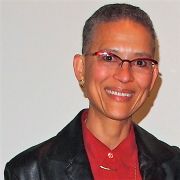
Philomena Essed
Philomena Essed is professor of Critical Race, Gender and Leadership Studies at Antioch University’s Graduate School of Leadership and Change and Distinguished Visiting Professor at the University of Johannesburg. She holds a PhD from the University of Amsterdam and Honorary Doctorate degrees from the University of Pretoria (2011) and Umeå University (2015). In 2011, the Queen of the Netherlands honored her with a Knighthood.
Well known for introducing the concepts of everyday racism and gendered racism, she also pioneered in developing theory on social and cultural cloning. The now classical 1984 (in Dutch) Alledaags Racisme (English version, Everyday Racism, 1990 has been republished in 2018. Other books include Understanding Everyday Racism; Diversity: Gender, Color and Culture and co-edited volumes: Race Critical Theories; Refugees and the Transformation of Societies; A Companion to Gender Studies (‘outstanding’ 2005 CHOICE award); Clones, Fakes and Posthumans: Cultures of Replication, (2012), Dutch Racism (2014), and Relating Worlds of Racism (in press). Her current focus is on dignity and ethics of care as experience and practice in leading change.
Philomena Essed is professor of Critical Race, Gender and Leadership Studies at Antioch University’s Graduate School of Leadership and Change and Distinguished Visiting Professor at the University of Johannesburg. She holds a PhD from the University of Amsterdam and Honorary Doctorate degrees from the University of Pretoria (2011) and Umeå University (2015). In 2011, the Queen of the Netherlands honored her with a Knighthood.
Well known for introducing the concepts of everyday racism and gendered racism, she also pioneered in developing theory on social and cultural cloning. The now classical 1984 (in Dutch) Alledaags Racisme (English version, Everyday Racism, 1990 has been republished in 2018. Other books include Understanding Everyday Racism; Diversity: Gender, Color and Culture and co-edited volumes: Race Critical Theories; Refugees and the Transformation of Societies; A Companion to Gender Studies (‘outstanding’ 2005 CHOICE award); Clones, Fakes and Posthumans: Cultures of Replication, (2012), Dutch Racism (2014), and Relating Worlds of Racism (in press). Her current focus is on dignity and ethics of care as experience and practice in leading change.
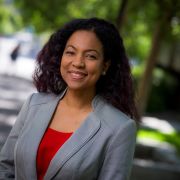
Diane Forbes Berthoud
Diane Forbes Berthoud, Ph.D. is the Assistant Vice Chancellor, Equity, Diversity, Inclusion at the University of California, San Diego, where her responsibilities include strategic planning, advancing institutional effectiveness, serving as liaison to Human Resources, and leading diversity-focused community engagement and campus-wide initiatives. As a member of the Vice Chancellor's leadership team, she represents the Vice Chancellor on high-level task forces, advisory groups, university and system-wide initiatives. She is also affiliate faculty of the George Washington School of International Affairs in Leadership Studies and faculty emeritus for the RISE San Diego Urban Leadership Program that trains and empowers urban leaders to take effective and sustainable action to transform San Diego’s urban communities.
Diane’s research focuses on gendered, raced, intersectional processes of organizing, and explores creative ways to expand pedagogy in Leadership Studies. She has presented her work on Black women’s leadership, intersectionality, organizational discourse, and inclusive pedagogy at the annual meetings of the National Communication, International Communication Associations, Caribbean Studies Association, and as an invited speaker on civil rights and women’s leadership at the International Fulbright Conference in 2016. One of her recent works appears in Gender, Communication, and the Leadership Gap (2017), a Volume in the International Leadership Association Series, Women and Leadership: Research, Theory, and Practice. Diane received her M.A. and Ph.D. in Organizational Communication and Social Psychology from Howard University in Washington, DC, and earned her B.A. in Communication and a certificate in Spanish Translation and Interpretation from Barry University in Florida.
Diane Forbes Berthoud, Ph.D. is the Assistant Vice Chancellor, Equity, Diversity, Inclusion at the University of California, San Diego, where her responsibilities include strategic planning, advancing institutional effectiveness, serving as liaison to Human Resources, and leading diversity-focused community engagement and campus-wide initiatives. As a member of the Vice Chancellor's leadership team, she represents the Vice Chancellor on high-level task forces, advisory groups, university and system-wide initiatives. She is also affiliate faculty of the George Washington School of International Affairs in Leadership Studies and faculty emeritus for the RISE San Diego Urban Leadership Program that trains and empowers urban leaders to take effective and sustainable action to transform San Diego’s urban communities.
Diane’s research focuses on gendered, raced, intersectional processes of organizing, and explores creative ways to expand pedagogy in Leadership Studies. She has presented her work on Black women’s leadership, intersectionality, organizational discourse, and inclusive pedagogy at the annual meetings of the National Communication, International Communication Associations, Caribbean Studies Association, and as an invited speaker on civil rights and women’s leadership at the International Fulbright Conference in 2016. One of her recent works appears in Gender, Communication, and the Leadership Gap (2017), a Volume in the International Leadership Association Series, Women and Leadership: Research, Theory, and Practice. Diane received her M.A. and Ph.D. in Organizational Communication and Social Psychology from Howard University in Washington, DC, and earned her B.A. in Communication and a certificate in Spanish Translation and Interpretation from Barry University in Florida.

Kyra Gaunt
Kyra Gaunt, Ph.D. is a well-known ethnomusicologist, a singer-songwriter, and a social media researcher on faculty in music at University at Albany, SUNY. Her book The Games Black Girls Play: Learning the Ropes from Double-Dutch to Hip-Hop published by NYU Press won of the 2007 Alan Merriam Book Prize awarded by The Society for Ethnomusicology, which contributed to the emergence of black girlhood studies and hip-hop feminism. It also inspired a work by fellow TED Fellow Camille A. Brown, BLACK GIRL: Linguistic Play by Camille A Brown and Dancers, nominated for a 2016 Bessie Award for Outstanding Production.
The Ford Foundation and the National Endowment for the Humanities have supported her scholarly endeavors contributing to publications in Musical Quarterly, The Journal for Popular Music Studies and Parcours anthropologiques. Other publications include chapters in I Was Born to Use Mics: Listening to Nas’ Illmatic and The Hip-hop & Obama Reader.
In addition to scholarly work. Dr. Gaunt is a federally-certified expert witness in cases involving the unintended consequences of social media and she performs and records as a classically-trained singer, R&B singer-songwriter, and jazz vocalist. Her CD Be the True Revolution is available on iTunes. Her next book will discuss music and misogynoir on YouTube and other platforms. She is a proud alumna of the University of Michigan and a member of the inaugural class of 2009 TED Fellows.
Kyra Gaunt, Ph.D. is a well-known ethnomusicologist, a singer-songwriter, and a social media researcher on faculty in music at University at Albany, SUNY. Her book The Games Black Girls Play: Learning the Ropes from Double-Dutch to Hip-Hop published by NYU Press won of the 2007 Alan Merriam Book Prize awarded by The Society for Ethnomusicology, which contributed to the emergence of black girlhood studies and hip-hop feminism. It also inspired a work by fellow TED Fellow Camille A. Brown, BLACK GIRL: Linguistic Play by Camille A Brown and Dancers, nominated for a 2016 Bessie Award for Outstanding Production.
The Ford Foundation and the National Endowment for the Humanities have supported her scholarly endeavors contributing to publications in Musical Quarterly, The Journal for Popular Music Studies and Parcours anthropologiques. Other publications include chapters in I Was Born to Use Mics: Listening to Nas’ Illmatic and The Hip-hop & Obama Reader.
In addition to scholarly work. Dr. Gaunt is a federally-certified expert witness in cases involving the unintended consequences of social media and she performs and records as a classically-trained singer, R&B singer-songwriter, and jazz vocalist. Her CD Be the True Revolution is available on iTunes. Her next book will discuss music and misogynoir on YouTube and other platforms. She is a proud alumna of the University of Michigan and a member of the inaugural class of 2009 TED Fellows.
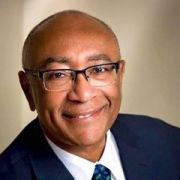
Zachary Gabriel Green
Zachary Gabriel Green, Ph.D. was the director of the On the Matter of Black Lives conference and directed the first all-Black staff group relations conference 20 years ago in Washington, DC. Currently, Zachary is a professor of practice in Leadership Studies at University of San Diego. He is also lead faculty for the RISE Urban Leadership Fellows. A clinical psychologist by training, Zachary teaches courses on human development, organizational behavior, dialogue, negotiations, mindfulness, and love. As a practitioner, Zachary’s clients include multinational corporations, government agencies, NGO’s, universities, religious institutions, and nonprofits entities. He has coached top leaders at the World Bank for the better part of two decades. His most recent venture, through IMAGO Global Grassroots, involves co-creative model of international development in South Asia, Sub-Saharan Africa and South America. Zachary frequently offers training on integral and unconscious psychological dimensions of leadership and conducts consultations to organizations on diversity, equity and inclusion.
Zachary received a doctorate in Clinical Psychology from Boston University, completed advanced clinical training at Cambridge Hospital/Harvard Medical School as and Georgetown University. He began his career as an associate of the Wharton Center for Applied Leadership.
Zachary Gabriel Green, Ph.D. was the director of the On the Matter of Black Lives conference and directed the first all-Black staff group relations conference 20 years ago in Washington, DC. Currently, Zachary is a professor of practice in Leadership Studies at University of San Diego. He is also lead faculty for the RISE Urban Leadership Fellows. A clinical psychologist by training, Zachary teaches courses on human development, organizational behavior, dialogue, negotiations, mindfulness, and love. As a practitioner, Zachary’s clients include multinational corporations, government agencies, NGO’s, universities, religious institutions, and nonprofits entities. He has coached top leaders at the World Bank for the better part of two decades. His most recent venture, through IMAGO Global Grassroots, involves co-creative model of international development in South Asia, Sub-Saharan Africa and South America. Zachary frequently offers training on integral and unconscious psychological dimensions of leadership and conducts consultations to organizations on diversity, equity and inclusion.
Zachary received a doctorate in Clinical Psychology from Boston University, completed advanced clinical training at Cambridge Hospital/Harvard Medical School as and Georgetown University. He began his career as an associate of the Wharton Center for Applied Leadership.
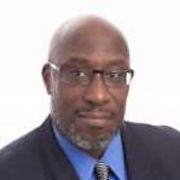
Patrick F. McKay
Patrick F. McKay is a Professor of Human Resource Management in the School of Management and Labor Relations at Rutgers University. Dr. McKay received his Ph.D. in Industrial-Organizational Psychology in 1999 from the University of Akron. He is a member of the Academy of Management and the Personnel/Human Resources Research Group (PHRRG), and has been recognized as a Fellow of the Society for Industrial and Organizational Psychology (SIOP). His research interests include demographic disparities in work outcomes, diversity, diversity climate, organizational demography, worker attitudes and retention, and job- and organizational-level performance. He has published articles in respected publications such as the Journal of Applied Psychology, Journal of Management, Organization Science, and Personnel Psychology. Dr. McKay has published over 35 articles and book chapters and has received numerous awards for his research. Currently, he is an Associate Editor for the Personnel Psychology and serves as the Division Chair of the Gender and Diversity in Organizations division of the Academy of Management.
Patrick F. McKay is a Professor of Human Resource Management in the School of Management and Labor Relations at Rutgers University. Dr. McKay received his Ph.D. in Industrial-Organizational Psychology in 1999 from the University of Akron. He is a member of the Academy of Management and the Personnel/Human Resources Research Group (PHRRG), and has been recognized as a Fellow of the Society for Industrial and Organizational Psychology (SIOP). His research interests include demographic disparities in work outcomes, diversity, diversity climate, organizational demography, worker attitudes and retention, and job- and organizational-level performance. He has published articles in respected publications such as the Journal of Applied Psychology, Journal of Management, Organization Science, and Personnel Psychology. Dr. McKay has published over 35 articles and book chapters and has received numerous awards for his research. Currently, he is an Associate Editor for the Personnel Psychology and serves as the Division Chair of the Gender and Diversity in Organizations division of the Academy of Management.

Addie Perkins Williamson
Addie Perkins Williamson is a widely recognized authority on organizational development and effectiveness. She has consulted, written and taught in the field for more than 25 years. With credentials that combine high-level academic training and extensive business experience, she has helped companies in a wide range of industries to increase their operating effectiveness and efficiency, ensure high levels of employee engagement, and improve their overall global competitiveness.
After a successful career as an executive with Fortune 500 companies Chase Manhattan Bank (now JP Morgan Chase), Pfizer, Pepsi Cola and American Express, Dr. Perkins Williamson established her consulting firm in 1994. As President and CEO of Perkins Williamson Associates, she works with an exceptional team of experts in the areas of Organizational Development, Change Management; Competency Modeling, Diversity, Multiculturalism and Inclusion strategy; Leadership Development, Performance Management and Assessment, Team Building/Development, and Organizational Assessment.
Dr. Perkins Williamson has taught at Columbia University, New York University and Baruch College. She holds both a Ph.D. and M.A. from the University of Michigan and a B.S. from Morgan State University.
She is a member of the Academy of Management, the American Psychological Association, and the Society of Industrial and Organizational Psychologists.
Addie Perkins Williamson is a widely recognized authority on organizational development and effectiveness. She has consulted, written and taught in the field for more than 25 years. With credentials that combine high-level academic training and extensive business experience, she has helped companies in a wide range of industries to increase their operating effectiveness and efficiency, ensure high levels of employee engagement, and improve their overall global competitiveness.
After a successful career as an executive with Fortune 500 companies Chase Manhattan Bank (now JP Morgan Chase), Pfizer, Pepsi Cola and American Express, Dr. Perkins Williamson established her consulting firm in 1994. As President and CEO of Perkins Williamson Associates, she works with an exceptional team of experts in the areas of Organizational Development, Change Management; Competency Modeling, Diversity, Multiculturalism and Inclusion strategy; Leadership Development, Performance Management and Assessment, Team Building/Development, and Organizational Assessment.
Dr. Perkins Williamson has taught at Columbia University, New York University and Baruch College. She holds both a Ph.D. and M.A. from the University of Michigan and a B.S. from Morgan State University.
She is a member of the Academy of Management, the American Psychological Association, and the Society of Industrial and Organizational Psychologists.
David M. Porter
David M. Porter, Ph.D has served as Executive Director of the Walter Kaitz Foundation since 2006. He oversees the day-to-day management of the Foundation, which is a leading advocate for diversity in the media and entertainment industries. He also manages the allocation of Foundation funds in support of organizations and programs, which champion industry-wide diversity initiatives. Finally, he provides oversight of the Foundation’s programs including the Hollywood Creative Forum and the Kaitz Foundation Fundraising Dinner.
Previously, he served as the Director of Graduate Programs for the Howard University School of Business and as an Assistant Professor at the Anderson School at UCLA. While at UCLA, Dr. Porter was the co-creator of the Executive Leadership Development Program of the National Association of Multi-Ethnicity in Communications (NAMIC), which in recent years has provided leadership training at the Darden School at the University of Virginia to hundreds of NAMIC members and cable executives of color.
Dr. Porter’s research has focused on the psychological and sociological underpinnings of unconscious bias and their impact on race and gender issues in the workplace. His research suggests that managers’ perceptions of their subordinates are affected by the composition of the work group of which they are a part and by individual differences such as race and gender.
Dr. Porter holds five college degrees: a PhD in organizational behavior and a Master’s Degree in Sociology from Harvard; as well as a Master’s Degree in Industrial Engineering, a Master’s Degree in Sociology, and a Bachelor’s Degree in Industrial Engineering, all from Stanford University.
David M. Porter, Ph.D has served as Executive Director of the Walter Kaitz Foundation since 2006. He oversees the day-to-day management of the Foundation, which is a leading advocate for diversity in the media and entertainment industries. He also manages the allocation of Foundation funds in support of organizations and programs, which champion industry-wide diversity initiatives. Finally, he provides oversight of the Foundation’s programs including the Hollywood Creative Forum and the Kaitz Foundation Fundraising Dinner.
Previously, he served as the Director of Graduate Programs for the Howard University School of Business and as an Assistant Professor at the Anderson School at UCLA. While at UCLA, Dr. Porter was the co-creator of the Executive Leadership Development Program of the National Association of Multi-Ethnicity in Communications (NAMIC), which in recent years has provided leadership training at the Darden School at the University of Virginia to hundreds of NAMIC members and cable executives of color.
Dr. Porter’s research has focused on the psychological and sociological underpinnings of unconscious bias and their impact on race and gender issues in the workplace. His research suggests that managers’ perceptions of their subordinates are affected by the composition of the work group of which they are a part and by individual differences such as race and gender.
Dr. Porter holds five college degrees: a PhD in organizational behavior and a Master’s Degree in Sociology from Harvard; as well as a Master’s Degree in Industrial Engineering, a Master’s Degree in Sociology, and a Bachelor’s Degree in Industrial Engineering, all from Stanford University.

Belle Rose Ragins
Belle Rose Ragins is a Professor of Management at the University of Wisconsin-Milwaukee. Her research interests focus on mentoring, diversity and positive relationships at work. Her work appears in the Academy of Management Review, Academy of Management Journal, Journal of Applied Psychology, Personnel Psychology and Psychological Bulletin. She is co-author of Mentoring and Diversity: An International Perspective, and co-editor of The Handbook of Mentoring at Work and Exploring Positive Relationships at Work.
She has received a number of national awards for her research, including the Sage Life-Time Achievement Award for Scholarly Contributions to Management, the Academy of Management Mentoring Legacy Award, the ASTD Research Award, the Center for Creative Leadership Ulmer Research Award, the Saroj Parasuraman Best Publication Award, and over 10 Best Paper Awards from the National Academy of Management.
Belle also has over twenty years of experience serving on leading editorial boards, and was an associate editor and the editor-in-chief for the Academy of Management Review. She is an invited member of the Society for Organizational Behavior, a Fulbright Senior Specialist Scholar, and a Fellow of APA, APS, SIOP, and the AOM.
Belle Rose Ragins is a Professor of Management at the University of Wisconsin-Milwaukee. Her research interests focus on mentoring, diversity and positive relationships at work. Her work appears in the Academy of Management Review, Academy of Management Journal, Journal of Applied Psychology, Personnel Psychology and Psychological Bulletin. She is co-author of Mentoring and Diversity: An International Perspective, and co-editor of The Handbook of Mentoring at Work and Exploring Positive Relationships at Work.
She has received a number of national awards for her research, including the Sage Life-Time Achievement Award for Scholarly Contributions to Management, the Academy of Management Mentoring Legacy Award, the ASTD Research Award, the Center for Creative Leadership Ulmer Research Award, the Saroj Parasuraman Best Publication Award, and over 10 Best Paper Awards from the National Academy of Management.
Belle also has over twenty years of experience serving on leading editorial boards, and was an associate editor and the editor-in-chief for the Academy of Management Review. She is an invited member of the Society for Organizational Behavior, a Fulbright Senior Specialist Scholar, and a Fellow of APA, APS, SIOP, and the AOM.
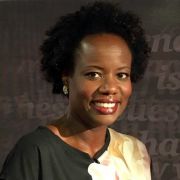
Elena Richards
Elena is the U.S. Minority Initiatives and Talent Management Leader for the Office of Diversity at PricewaterhouseCoopers LLP. A thought leader on diversity and inclusion (D&I) strategies, she is responsible for the firm’s multicultural initiatives designed to retain, develop and advance diverse professionals. Elena is also responsible for PwC’s Diamond program, a coaching and advocacy program for high-potential minority senior managers and directors.
Since joining PwC in 1999, Elena has served in a variety of Human Capital roles and spearheaded the firm's signature Vanguard program, a year-long leadership development program for the firm’s Black/African American new hires. She is also responsible for leading the efforts around unconscious bias education firmwide.
Prior to joining the firm, Elena worked for Inroads, where she led Talent Acquisition for their Northern New Jersey affiliate. She was responsible for placing talented minority interns in organizations like PwC and converting them to full-time hires.
Externally, Elena is a member of Society of Human Resource Management (SHRM) and NAAHR (National Association of African Americans in Human Resources). She also sits on Working Mother Media's Advisory Board for Multicultural Women, which focuses on deepening the conversation around race and gender in the workplace. Most recently, Elena was appointed to the American Institute of Certified Public Accountants’ (AICPA) National Commission on Diversity and Inclusion.
She is a magna cum laude graduate from University of NY at Albany and received her Executive Coaching credential through the International Coach Federation in 2014.
Elena is the U.S. Minority Initiatives and Talent Management Leader for the Office of Diversity at PricewaterhouseCoopers LLP. A thought leader on diversity and inclusion (D&I) strategies, she is responsible for the firm’s multicultural initiatives designed to retain, develop and advance diverse professionals. Elena is also responsible for PwC’s Diamond program, a coaching and advocacy program for high-potential minority senior managers and directors.
Since joining PwC in 1999, Elena has served in a variety of Human Capital roles and spearheaded the firm's signature Vanguard program, a year-long leadership development program for the firm’s Black/African American new hires. She is also responsible for leading the efforts around unconscious bias education firmwide.
Prior to joining the firm, Elena worked for Inroads, where she led Talent Acquisition for their Northern New Jersey affiliate. She was responsible for placing talented minority interns in organizations like PwC and converting them to full-time hires.
Externally, Elena is a member of Society of Human Resource Management (SHRM) and NAAHR (National Association of African Americans in Human Resources). She also sits on Working Mother Media's Advisory Board for Multicultural Women, which focuses on deepening the conversation around race and gender in the workplace. Most recently, Elena was appointed to the American Institute of Certified Public Accountants’ (AICPA) National Commission on Diversity and Inclusion.
She is a magna cum laude graduate from University of NY at Albany and received her Executive Coaching credential through the International Coach Federation in 2014.
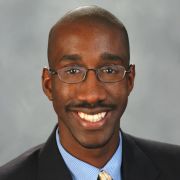
Jeffrey A. Robinson
Jeffrey A. Robinson, Ph.D. is an award winning business school professor, international speaker and entrepreneur. Since 2008, he has been a leading faculty member at Rutgers Business School where he is an associate professor of management and entrepreneurship and the Academic Director of The Center for Urban Entrepreneurship & Economic Development. Dr. Robinson is a passionate advocate for social entrepreneurship, inclusive innovation and economic development. He is the author of books and articles on such topics as social entrepreneurship, African American women in entrepreneurship, and patterns of minority entrepreneurship. Emerging from his pioneering research, the New Jersey Social Innovation Institute and the CUEED Pipeline to Inclusive Innovation are national and international models for economic development and social problem solving using entrepreneurial approaches. His most recent work is a multi-year project to study social entrepreneurship and social innovation in the U.S., Australia, South Africa, Kenya, Russia and China. He has been the keynote speaker at international events and conferences and has taught or presented his work on six continents. Dr. Robinson has five degrees in engineering, urban studies, management and entrepreneurship.
Jeffrey A. Robinson, Ph.D. is an award winning business school professor, international speaker and entrepreneur. Since 2008, he has been a leading faculty member at Rutgers Business School where he is an associate professor of management and entrepreneurship and the Academic Director of The Center for Urban Entrepreneurship & Economic Development. Dr. Robinson is a passionate advocate for social entrepreneurship, inclusive innovation and economic development. He is the author of books and articles on such topics as social entrepreneurship, African American women in entrepreneurship, and patterns of minority entrepreneurship. Emerging from his pioneering research, the New Jersey Social Innovation Institute and the CUEED Pipeline to Inclusive Innovation are national and international models for economic development and social problem solving using entrepreneurial approaches. His most recent work is a multi-year project to study social entrepreneurship and social innovation in the U.S., Australia, South Africa, Kenya, Russia and China. He has been the keynote speaker at international events and conferences and has taught or presented his work on six continents. Dr. Robinson has five degrees in engineering, urban studies, management and entrepreneurship.
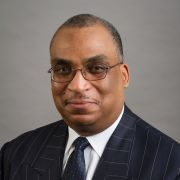
Steven Rogers
Steven Rogers is the MBA Class of 1957 Senior Lecturer in General Management and teaches Entrepreneurial Finance and a new course titled Black Business Leaders and Entrepreneurship. A 1985 graduate of the school, Professor Rogers holds a Bachelor of Arts degree from Williams College. Prior to teaching at HBS, Professor Rogers taught in the MBA program at the Kellogg School of Management and the Northwestern University PhD program. He received the Outstanding Professor Award for the Executive MBA Program 26 times, and daytime program twice. Both are records.
In 2016 he was a volunteer professor at the United States Military Academy. He has taught in Africa, Australia, Canada, Germany, Hong Kong, India, Mexico, Philippines and Vienna. Before becoming a professor, he owned and operated two manufacturing firms and one retail operation. Prior to becoming an entrepreneur, Professor Rogers worked at Bain and Company Consulting firm, Cummins Engine Company and UNC Ventures, a venture capital firm. He received the ‘Bicentennial Medal for Distinguished Achievement’ by an alum from Williams College, and the ‘Bert King Award for Service’ from the African American Student Union at HBS. Ebony Magazine named him one of the top 150 influential people in America.
He has often been quoted in many publications, including Black Enterprise, Crain’s Business Journal, Financial Times, Washington Post, Boston Globe, The Wall Street Journal, Chicago Tribune, Chicago Sun-Times, Fortune, Monarch and BusinessWeek, NPR and the Tom Joyner Show. In 2002 Professor Rogers published his first book, The Entrepreneur’s Guide to Finance and Business. The second edition was published in 2008, and third edition in 2014. He has also authored 15 case studies.
He has completed five Triathlons and is part owner of the Chicago Sky in the WNBA.
Steven Rogers is the MBA Class of 1957 Senior Lecturer in General Management and teaches Entrepreneurial Finance and a new course titled Black Business Leaders and Entrepreneurship. A 1985 graduate of the school, Professor Rogers holds a Bachelor of Arts degree from Williams College. Prior to teaching at HBS, Professor Rogers taught in the MBA program at the Kellogg School of Management and the Northwestern University PhD program. He received the Outstanding Professor Award for the Executive MBA Program 26 times, and daytime program twice. Both are records.
In 2016 he was a volunteer professor at the United States Military Academy. He has taught in Africa, Australia, Canada, Germany, Hong Kong, India, Mexico, Philippines and Vienna. Before becoming a professor, he owned and operated two manufacturing firms and one retail operation. Prior to becoming an entrepreneur, Professor Rogers worked at Bain and Company Consulting firm, Cummins Engine Company and UNC Ventures, a venture capital firm. He received the ‘Bicentennial Medal for Distinguished Achievement’ by an alum from Williams College, and the ‘Bert King Award for Service’ from the African American Student Union at HBS. Ebony Magazine named him one of the top 150 influential people in America.
He has often been quoted in many publications, including Black Enterprise, Crain’s Business Journal, Financial Times, Washington Post, Boston Globe, The Wall Street Journal, Chicago Tribune, Chicago Sun-Times, Fortune, Monarch and BusinessWeek, NPR and the Tom Joyner Show. In 2002 Professor Rogers published his first book, The Entrepreneur’s Guide to Finance and Business. The second edition was published in 2008, and third edition in 2014. He has also authored 15 case studies.
He has completed five Triathlons and is part owner of the Chicago Sky in the WNBA.
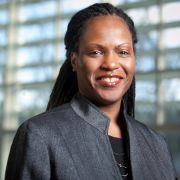
Ashleigh Shelby Rosette
Ashleigh Shelby Rosette is an Associate Professor of Management and Organizations and a Center of Leadership and Ethics scholar at the Fuqua School of Business at Duke University. She is also an Affiliate of the Samuel Dubois Cook Center on Social Equity. Professor Rosette studies diversity and negotiations in organizational settings. In her primary area of research, she explores social and contextual factors that influence diversity-related perceptions. The three streams of her diversity research include: (1) recognition and inference-based processes of leadership, (2) intersectionality and social positioning, and (3) perceptions of social inequity. In her secondary area of research, negotiations, she examines various strategies that individuals employ to improve the negotiation process and negotiated outcome.
Her research has been published in numerous top academic journals. Professor Rosette’s teaching experience is varied and spans across a spectrum of topics that center around two primary areas: (1) Negotiations and (2) Leadership. She has received the Excellence in Teaching Award of the Year in the Executive MBA programs at Fuqua ten times. She received her Bachelor in Business Administration degree and Master in Professional Accounting degree from the University of Texas at Austin. She received her Ph.D. in Management and Organizations from the Kellogg School of Management at Northwestern University.
Ashleigh Shelby Rosette is an Associate Professor of Management and Organizations and a Center of Leadership and Ethics scholar at the Fuqua School of Business at Duke University. She is also an Affiliate of the Samuel Dubois Cook Center on Social Equity. Professor Rosette studies diversity and negotiations in organizational settings. In her primary area of research, she explores social and contextual factors that influence diversity-related perceptions. The three streams of her diversity research include: (1) recognition and inference-based processes of leadership, (2) intersectionality and social positioning, and (3) perceptions of social inequity. In her secondary area of research, negotiations, she examines various strategies that individuals employ to improve the negotiation process and negotiated outcome.
Her research has been published in numerous top academic journals. Professor Rosette’s teaching experience is varied and spans across a spectrum of topics that center around two primary areas: (1) Negotiations and (2) Leadership. She has received the Excellence in Teaching Award of the Year in the Executive MBA programs at Fuqua ten times. She received her Bachelor in Business Administration degree and Master in Professional Accounting degree from the University of Texas at Austin. She received her Ph.D. in Management and Organizations from the Kellogg School of Management at Northwestern University.

Lumumba Seegars
Lumumba Seegars is a doctoral student in Organizational Behavior, a joint program with Harvard Business School and the Department of Psychology. He studies how individuals’ values and identities affect how they experience, enact, and react to changes in organizations meant to address inequality. He has work experience in education, the performing arts, political campaigns, and ministry. Lumumba completed his undergraduate studies in Social Studies at Harvard College.
Lumumba Seegars is a doctoral student in Organizational Behavior, a joint program with Harvard Business School and the Department of Psychology. He studies how individuals’ values and identities affect how they experience, enact, and react to changes in organizations meant to address inequality. He has work experience in education, the performing arts, political campaigns, and ministry. Lumumba completed his undergraduate studies in Social Studies at Harvard College.
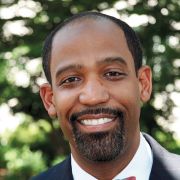
Ron Sullivan
Professor Sullivan is a leading theorist in the areas of criminal law, criminal procedure, trial practice and techniques, legal ethics, and race theory. He is the faculty director of the Harvard Criminal Justice Institute and the Harvard Trial Advocacy Workshop. Professor Sullivan also serves as Faculty Dean of Winthrop House at Harvard College. He is the first African American ever appointed Faculty Dean in Harvard's history. He is a founding member and Senior Fellow of the Jamestown Project.
Professor Sullivan has merged legal theory and practice over the course of his career in unique and cutting-edge ways.
In 2014, Professor Sullivan was tasked to design and implement a Conviction Review Unit (“CRU”) for the newly elected Brooklyn District Attorney. The CRU, designed to identify and exonerate wrongfully convicted persons, quickly became regarded as the model conviction integrity program in the nation. In its first year of operation alone, Professor Sullivan discovered over 10 wrongful convictions, which the DA ultimately vacated. Some of the exonerated citizens had served more than 30 years in prison before they were released.
In 2008, Professor Sullivan served as Chair, Criminal Justice Advisory Committee for then-Senator Barack Obama’s presidential campaign. In this capacity, Professor Sullivan’s committee made policy recommendations on a range of issues in an effort to put into practice some of the best research in the field. He also served as a member of the National Legal Advisory Group for the Barack Obama Presidential Campaign. Finally, Professor Sullivan was appointed Advisor to the Department of Justice Presidential Transition Team.
In 2007, in the wake of Hurricane Katrina, Professor Sullivan was asked to create a system to solve a criminal justice crisis. Over 6000 citizens were incarcerated in and around New Orleans without representation and with all official records destroyed by Hurricane Katrina. Professor Sullivan designed an indigent defense delivery system that resulted in the release of nearly all the 6000 inmates.
In 1994, Professor Sullivan was a visiting scholar for the Law Society of Kenya, where he sat on a committee charged with drafting a new constitution for Kenya. He also worked with the Kenyan Human Rights Commission on monitoring and challenging human rights abuses.
Prior to joining Harvard’s faculty, Professor Sullivan was on the Yale Law School faculty where he won the award for outstanding teaching after his first year. Before joining the legal academy, he served as the Director of the Public Defender Service for the District of Columbia. He also spent several years in private practice in two major Washington, D.C. law firms where he specialized in white-collar criminal defense and complex commercial litigation.
Professor Sullivan still maintains an appellate and trial practice. He has represented persons ranging from politicians to professional athletes to recording artists to pro bono clients in criminal jeopardy. Representative clients include: The family of Michael Brown; Former New England Patriot Aaron Hernandez; The family of Usaamah Rahim.
Professor Sullivan has provided legal commentary for CNN, FoxNews, PBS, and all the major networks. He has been quoted in the nation’s leading newspapers and periodicals, and he has testified before the United States Senate and House of Representatives on numerous occasions.
Professor Sullivan is a Phi Beta Kappa graduate of Morehouse College and the Harvard Law School, where he served as President of the Harvard Black Law Students Association and as General Editor of the Harvard BlackLetter Law Journal.
Professor Sullivan is a leading theorist in the areas of criminal law, criminal procedure, trial practice and techniques, legal ethics, and race theory. He is the faculty director of the Harvard Criminal Justice Institute and the Harvard Trial Advocacy Workshop. Professor Sullivan also serves as Faculty Dean of Winthrop House at Harvard College. He is the first African American ever appointed Faculty Dean in Harvard's history. He is a founding member and Senior Fellow of the Jamestown Project.
Professor Sullivan has merged legal theory and practice over the course of his career in unique and cutting-edge ways.
In 2014, Professor Sullivan was tasked to design and implement a Conviction Review Unit (“CRU”) for the newly elected Brooklyn District Attorney. The CRU, designed to identify and exonerate wrongfully convicted persons, quickly became regarded as the model conviction integrity program in the nation. In its first year of operation alone, Professor Sullivan discovered over 10 wrongful convictions, which the DA ultimately vacated. Some of the exonerated citizens had served more than 30 years in prison before they were released.
In 2008, Professor Sullivan served as Chair, Criminal Justice Advisory Committee for then-Senator Barack Obama’s presidential campaign. In this capacity, Professor Sullivan’s committee made policy recommendations on a range of issues in an effort to put into practice some of the best research in the field. He also served as a member of the National Legal Advisory Group for the Barack Obama Presidential Campaign. Finally, Professor Sullivan was appointed Advisor to the Department of Justice Presidential Transition Team.
In 2007, in the wake of Hurricane Katrina, Professor Sullivan was asked to create a system to solve a criminal justice crisis. Over 6000 citizens were incarcerated in and around New Orleans without representation and with all official records destroyed by Hurricane Katrina. Professor Sullivan designed an indigent defense delivery system that resulted in the release of nearly all the 6000 inmates.
In 1994, Professor Sullivan was a visiting scholar for the Law Society of Kenya, where he sat on a committee charged with drafting a new constitution for Kenya. He also worked with the Kenyan Human Rights Commission on monitoring and challenging human rights abuses.
Prior to joining Harvard’s faculty, Professor Sullivan was on the Yale Law School faculty where he won the award for outstanding teaching after his first year. Before joining the legal academy, he served as the Director of the Public Defender Service for the District of Columbia. He also spent several years in private practice in two major Washington, D.C. law firms where he specialized in white-collar criminal defense and complex commercial litigation.
Professor Sullivan still maintains an appellate and trial practice. He has represented persons ranging from politicians to professional athletes to recording artists to pro bono clients in criminal jeopardy. Representative clients include: The family of Michael Brown; Former New England Patriot Aaron Hernandez; The family of Usaamah Rahim.
Professor Sullivan has provided legal commentary for CNN, FoxNews, PBS, and all the major networks. He has been quoted in the nation’s leading newspapers and periodicals, and he has testified before the United States Senate and House of Representatives on numerous occasions.
Professor Sullivan is a Phi Beta Kappa graduate of Morehouse College and the Harvard Law School, where he served as President of the Harvard Black Law Students Association and as General Editor of the Harvard BlackLetter Law Journal.
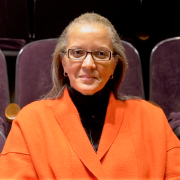
Flora Taylor
Flora Taylor is an organizational development consultant, executive coach and group dynamics specialist. She has worked with clients to achieve quantifiable results in their organizations for over 20 years. Flora brings varied types of experience to her consulting work. She leverages her Psychology background along with her group expertise to determine the intervention that best meets the client’s individual and organizational needs. Her approach involves utilizing her considerable diagnostic skills to develop an accurate working hypothesis of her clients’ organizational issues and then designing a customized intervention to meet the identified need. Her practice areas include organizational diagnosis, team development, executive coaching, meeting effectiveness, applied and focus group research, diversity, large group facilitation, and facilitator training. Flora passionately advocates for the benefits of experiential learning. She has designed, directed, and staffed many experiential conferences, simulations, and retreats for executives on the dynamics of organizational life using Social Systems (Power Lab), and Group Relations methodologies. Flora’s work history and associations include the Center For Applied Research, and Praxis, both boutique consulting firms specializing in psychodynamic approaches to organizational development.
Flora brings significant teaching experience to bear in the areas of leadership, power authority, and group development, including engagements at The Wharton School, and the School of Social Policy and Practice at the University of Pennsylvania, Teachers College of Columbia University, Ashoka University, (Haryana, India), the William Alanson White Institute, Rutgers University, and Seton Hall University. Her publications, “Anatomy of a Casualty,” and “Building a Multi-culturally Competent Practice” may be obtained upon request.
Flora earned her A.B. Cum Laude from Harvard University, and her Ph.D. from the University of Pennsylvania. She is a Fellow of the A.K. Rice Institute for the Study of Group Relations. She is a Licensed Psychologist with a specialty adult practice in issues related to work or interpersonal relationships. Flora earned her black belt in Tae Kwon Do, plays competitive tennis and has traveled extensively.
Flora Taylor is an organizational development consultant, executive coach and group dynamics specialist. She has worked with clients to achieve quantifiable results in their organizations for over 20 years. Flora brings varied types of experience to her consulting work. She leverages her Psychology background along with her group expertise to determine the intervention that best meets the client’s individual and organizational needs. Her approach involves utilizing her considerable diagnostic skills to develop an accurate working hypothesis of her clients’ organizational issues and then designing a customized intervention to meet the identified need. Her practice areas include organizational diagnosis, team development, executive coaching, meeting effectiveness, applied and focus group research, diversity, large group facilitation, and facilitator training. Flora passionately advocates for the benefits of experiential learning. She has designed, directed, and staffed many experiential conferences, simulations, and retreats for executives on the dynamics of organizational life using Social Systems (Power Lab), and Group Relations methodologies. Flora’s work history and associations include the Center For Applied Research, and Praxis, both boutique consulting firms specializing in psychodynamic approaches to organizational development.
Flora brings significant teaching experience to bear in the areas of leadership, power authority, and group development, including engagements at The Wharton School, and the School of Social Policy and Practice at the University of Pennsylvania, Teachers College of Columbia University, Ashoka University, (Haryana, India), the William Alanson White Institute, Rutgers University, and Seton Hall University. Her publications, “Anatomy of a Casualty,” and “Building a Multi-culturally Competent Practice” may be obtained upon request.
Flora earned her A.B. Cum Laude from Harvard University, and her Ph.D. from the University of Pennsylvania. She is a Fellow of the A.K. Rice Institute for the Study of Group Relations. She is a Licensed Psychologist with a specialty adult practice in issues related to work or interpersonal relationships. Flora earned her black belt in Tae Kwon Do, plays competitive tennis and has traveled extensively.
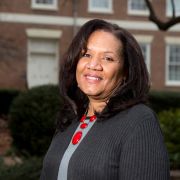
Kecia M. Thomas
Kecia M. Thomas is a Professor of Industrial/Organizational (I/O) Psychology and African-American Studies at the University of Georgia (UGA), and the founding director of the Center for Research and Engagement in Diversity (RED). She currently serves as the Senior Associate Dean (Faculty Affairs) in UGA’s Franklin College of Arts and Sciences. Her research is centered on workplace diversity with a particular interest in the experiences of people of color, women, and sexual minorities. She has published over 50 peer reviewed papers and book chapters, a textbook, and 5 edited volumes. She is an elected Fellow of both the Society for I/O Psychology and the American Psychological Association. Dr. Thomas earned a B.A. in Psychology and Spanish from Bucknell University and her M.S. and Ph.D. in I/O Psychology from the Pennsylvania State University. She is also a graduate of the HERS Management Institute at Wellesley College and the SEC Academic Leadership Development Program.
Kecia M. Thomas is a Professor of Industrial/Organizational (I/O) Psychology and African-American Studies at the University of Georgia (UGA), and the founding director of the Center for Research and Engagement in Diversity (RED). She currently serves as the Senior Associate Dean (Faculty Affairs) in UGA’s Franklin College of Arts and Sciences. Her research is centered on workplace diversity with a particular interest in the experiences of people of color, women, and sexual minorities. She has published over 50 peer reviewed papers and book chapters, a textbook, and 5 edited volumes. She is an elected Fellow of both the Society for I/O Psychology and the American Psychological Association. Dr. Thomas earned a B.A. in Psychology and Spanish from Bucknell University and her M.S. and Ph.D. in I/O Psychology from the Pennsylvania State University. She is also a graduate of the HERS Management Institute at Wellesley College and the SEC Academic Leadership Development Program.
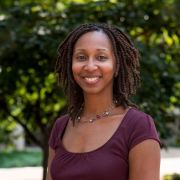
Adia Harvey Wingfield
Adia Harvey Wingfield is Professor of Sociology at Washington University in St. Louis. Her research focuses on racial and gender inequality in professional occupations. Dr. Wingfield has lectured internationally on her research in this area, and her work has been published in numerous peer-reviewed journals including Social Problems, Gender & Society, and American Behavioral Scientist. She is currently serving as President of Sociologists for Women in Society, a national organization that encourages feminist research and social change, and is a regular contributor to Inside Higher Ed, The Atlantic, and other popular outlets. Professor Wingfield is the author of several books, most recently No More Invisible Man: Race and Gender in Men's Work, and is the recipient of the 2018 Public Understanding of Sociology award from the American Sociological Association.
Adia Harvey Wingfield is Professor of Sociology at Washington University in St. Louis. Her research focuses on racial and gender inequality in professional occupations. Dr. Wingfield has lectured internationally on her research in this area, and her work has been published in numerous peer-reviewed journals including Social Problems, Gender & Society, and American Behavioral Scientist. She is currently serving as President of Sociologists for Women in Society, a national organization that encourages feminist research and social change, and is a regular contributor to Inside Higher Ed, The Atlantic, and other popular outlets. Professor Wingfield is the author of several books, most recently No More Invisible Man: Race and Gender in Men's Work, and is the recipient of the 2018 Public Understanding of Sociology award from the American Sociological Association.
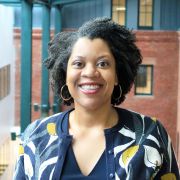
Melissa E. Wooten
Melissa E. Wooten is an Associate Professor of Sociology at the University of Massachusetts, Amherst. She studies how the structure of race and racism influences organizations. Her book In the Face of Inequality: How Black Colleges Adapt (SUNY Press) empirically investigates how racism disadvantage black colleges by preventing them from gaining critical financial and political resources.
Her work appears in academic and popular venues including Social Science History, Research in the Sociology of Organizations, The Conversation, and NPR.
Melissa E. Wooten is an Associate Professor of Sociology at the University of Massachusetts, Amherst. She studies how the structure of race and racism influences organizations. Her book In the Face of Inequality: How Black Colleges Adapt (SUNY Press) empirically investigates how racism disadvantage black colleges by preventing them from gaining critical financial and political resources.
Her work appears in academic and popular venues including Social Science History, Research in the Sociology of Organizations, The Conversation, and NPR.
